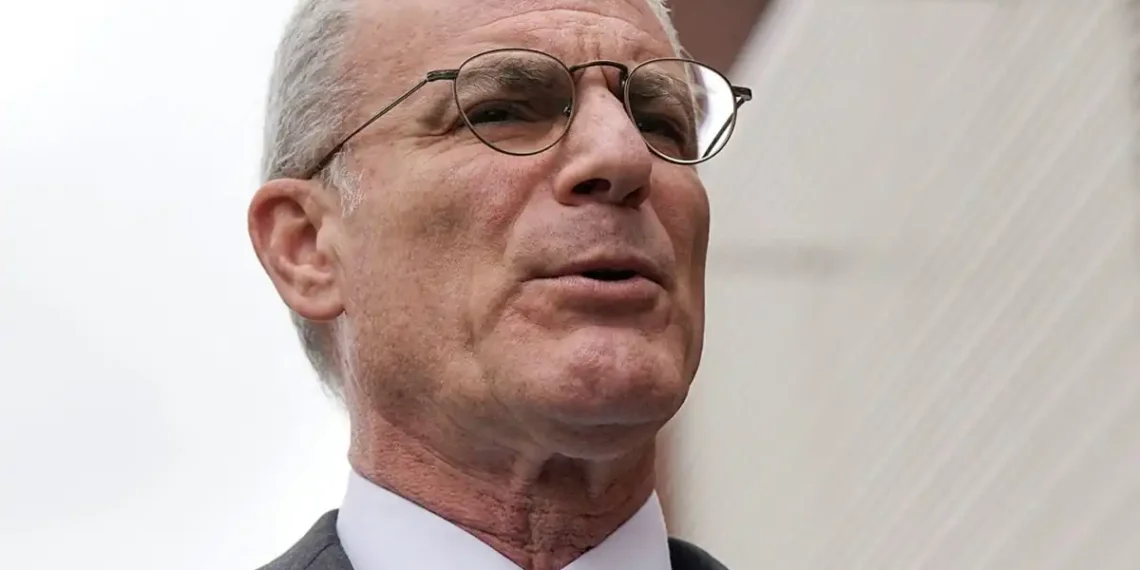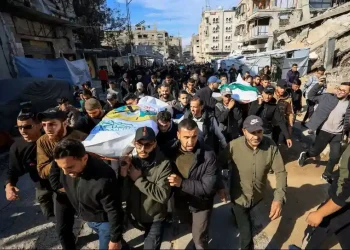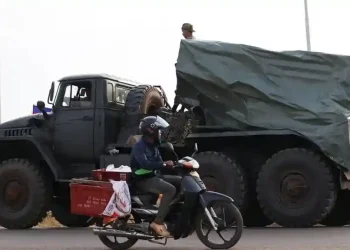Israeli Ambassador: Iran’s Ballistic Missile Program Must Be Dismantled Alongside Nuclear Ambitions
Israel’s ambassador to the United States warned this week that Iran’s growing arsenal of ballistic missiles is just as dangerous as its nuclear program—and both must be dismantled to protect regional and global security.
In a Wednesday interview with CNN’s Kaitlan Collins, Ambassador Yechiel Leiter stressed that Israel sees Iran’s missile production capabilities as an inseparable part of its broader military threat. “They come cruising out of the sky and create incredible damage,” Leiter said. “That production capacity has to be eliminated as well.”
His comments come amid a backdrop of escalating tensions between Israel and Iran, fueled by fears that Tehran is edging closer to building a nuclear bomb. While international focus has largely been on Iran’s enrichment of uranium, Israel has consistently warned that the country’s ballistic missile program—capable of delivering warheads across the region—is an equally urgent threat.
The Dual Threat: Nuclear and Ballistic
Iran has long insisted that its nuclear program is for peaceful purposes. But since the U.S. withdrawal from the 2015 Iran nuclear deal under President Donald Trump, Tehran has stepped up its enrichment activities and restricted international inspections. The Biden administration has sought to revive elements of the agreement, but negotiations have stalled amid political roadblocks and Iran’s continued nuclear progress.
At the same time, Iran has been expanding its missile arsenal, including long-range ballistic missiles capable of reaching Israel and U.S. military bases in the Middle East. Experts say Iran now possesses one of the largest and most diverse missile programs in the region.
Leiter emphasized that this dual-threat—nuclear capability plus the means to deliver it—represents an existential danger to Israel. “They cannot have the weapons that can destroy Israel, which they claim and which they want to do every day,” he said, referencing Tehran’s repeated calls for the end of the Israeli state.
Israel’s Options: Military Action on the Table
When asked whether Israel could strike Iran’s underground Fordow nuclear facility—deeply buried in a mountain near the city of Qom—Leiter didn’t offer specifics but signaled that military options are being considered. “It might require multiple strikes, it might require something else, or it might require one of our surprises,” he said.
Fordow is one of Iran’s most heavily fortified sites and would be extremely difficult to destroy in a single airstrike. Its protection by mountains and advanced air defenses makes it a prime example of why military analysts believe a strike on Iran would be far more complex than Israel’s past operations against nuclear programs in Iraq (1981) and Syria (2007).
Still, Israel has made clear it won’t rule out acting alone. “If we have to pursue this and prosecute this by ourselves, we’re going to know what to do,” Leiter said. “We’re not going to allow Iran to have a nuclear weapon.”
Strategic Pressure as U.S. Hesitates
Leiter’s remarks come as the Biden administration weighs its options in the face of Iran’s accelerating nuclear development. While Washington has expressed deep concern about Iran’s enrichment levels—now reportedly close to weapons-grade—it has stopped short of committing to military action.
This hesitation has fueled Israeli fears that the international community may once again tolerate a dangerous status quo. As a result, Israel is increasing its pressure—both diplomatically and rhetorically—while signaling that it is prepared to act unilaterally if necessary.
Israel’s military has been conducting drills simulating long-range strikes and preparing for potential conflict on multiple fronts. Meanwhile, Israeli intelligence officials have publicly warned that Tehran may be just weeks away from producing enough fissile material for a bomb—though weaponization would still take more time.
A Broader Regional Struggle
Beyond the nuclear file, Israel and Iran have been locked in a shadow war that spans the region—from Syria and Lebanon to the Red Sea and the Persian Gulf. Iran’s support for Hezbollah, Palestinian militant groups, and proxies across the Middle East has kept Israel on constant alert.
With no sign that Iran is backing down, and with diplomacy stalled, Israel’s message this week was unmistakable: it views the threat from Tehran as urgent, multidimensional, and something it’s prepared to confront alone if it must.
“The threats are real,” Leiter said. “And our responsibility is to make sure they never materialize.”
This article was rewritten by JournosNews.com based on verified reporting from trusted sources. The content has been independently reviewed, fact-checked, and edited for accuracy, neutrality, tone, and global readability in accordance with Google News and AdSense standards.
All opinions, quotes, or statements from contributors, experts, or sourced organizations do not necessarily reflect the views of JournosNews.com. JournosNews.com maintains full editorial independence from any external funders, sponsors, or organizations.
Stay informed with JournosNews.com — your trusted source for verified global reporting and in-depth analysis. Follow us on Google News, BlueSky, and X for real-time updates.














